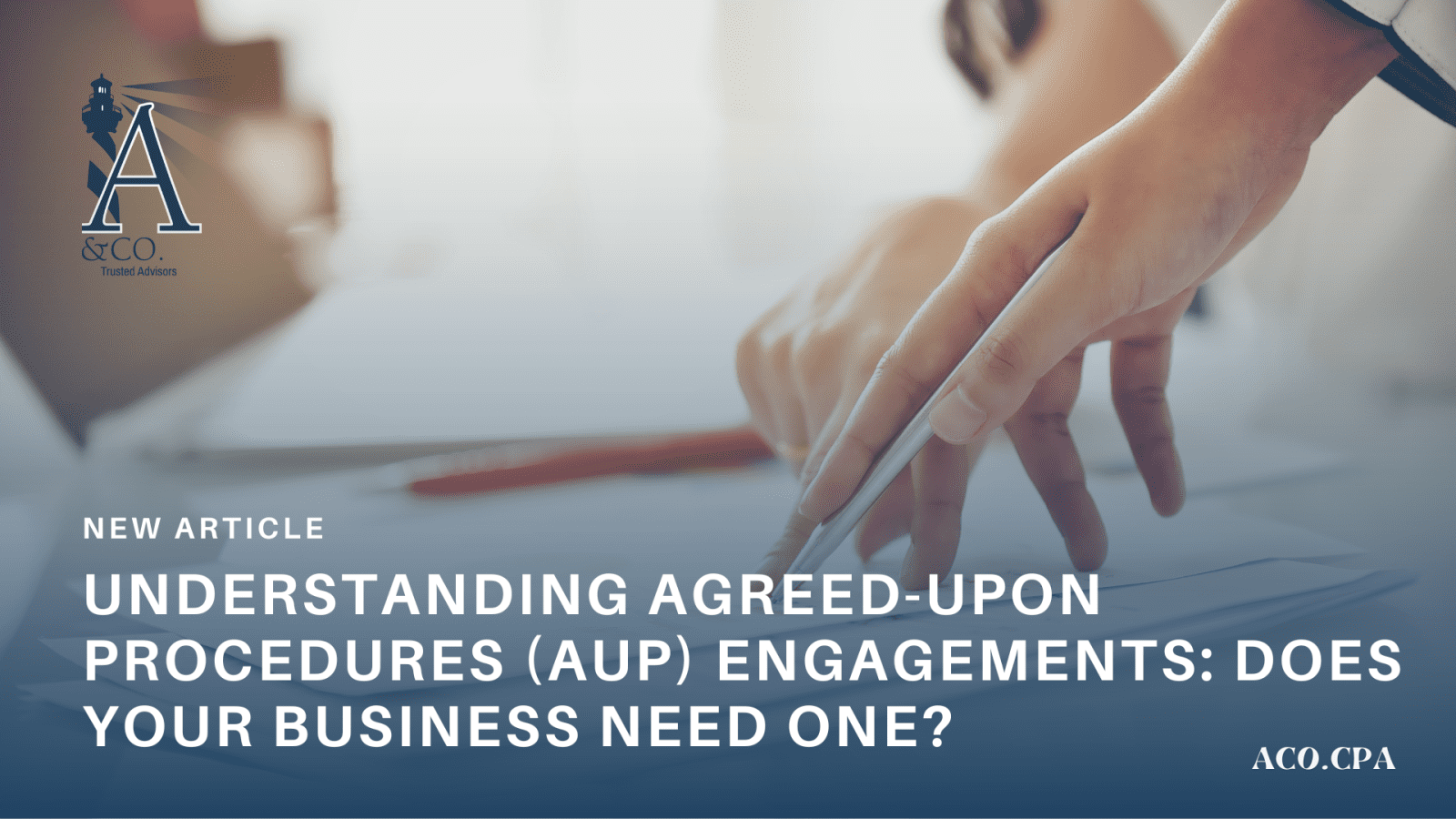In certain scenarios, a business might need the expertise of CPAs to perform agreed-upon procedures (AUP) rather than, or in addition to, a traditional review or audit. AUPs are a type of engagement that offers a targeted assessment on specific areas without providing an opinion or assurance. As defined by the American Institute of Certified Public Accountants (AICPA), AUPs involve “a practitioner performing specific procedures on subject matter and reporting findings without providing an opinion or conclusion.”
AUP engagements are often less costly and time-consuming than audits or reviews. They’re also highly versatile, addressing both financial and non-financial matters and providing deeper insights into specific areas of interest within your financial statements.
The Basics of AUP Engagements
An AUP engagement follows procedures similar to those used in an audit or review, but on a much narrower scale. These engagements do not offer assurance, and instead, an engagement letter is used to outline the procedures to be performed, which are specifically requested by the client.
Upon completing the AUP engagement, the CPA provides a report detailing both the procedures performed and the findings. According to AICPA standards, an AUP report must include:
- A title that includes the word “independent” to signify the CPA’s objectivity,
- Identification of the engaging party, the subject of the engagement, and the responsible party (if different from the engaging party),
- A clear purpose for the engagement,
- A statement that the CPA didn’t perform an examination or review,
- A disclaimer that the CPA does not express an opinion or conclusion, and
- Any reservations or restrictions regarding the findings or procedures.
Because of their flexibility, AUPs can be customized to the unique needs of your business, providing a more focused analysis of key operational areas.
Practical Applications of AUPs
AUPs are used in various real-world contexts where they deliver valuable insights for clients and third parties, such as:
- Internal Control Evaluations
- Grant Compliance
- Franchise Agreement Compliance
- Mergers and Acquisitions Due Diligence
- Construction Project Spending and Progress
- Royalty Payments for Licensing Agreements
Additionally, lenders may request an AUP engagement to verify a borrower’s compliance with loan covenants. If a lender waives a loan covenant violation discovered during a year-end review or audit, they may still require a CPA to perform mid-year AUPs to verify compliance with key financial metrics.
We Can Help
AUPs are one of the many flexible services CPAs provide. They can serve as a cost-effective alternative (or supplement) to traditional financial statement audits or reviews. If you think an AUP engagement may be beneficial to your business, contact us to discuss whether it’s the right choice for your situation.



